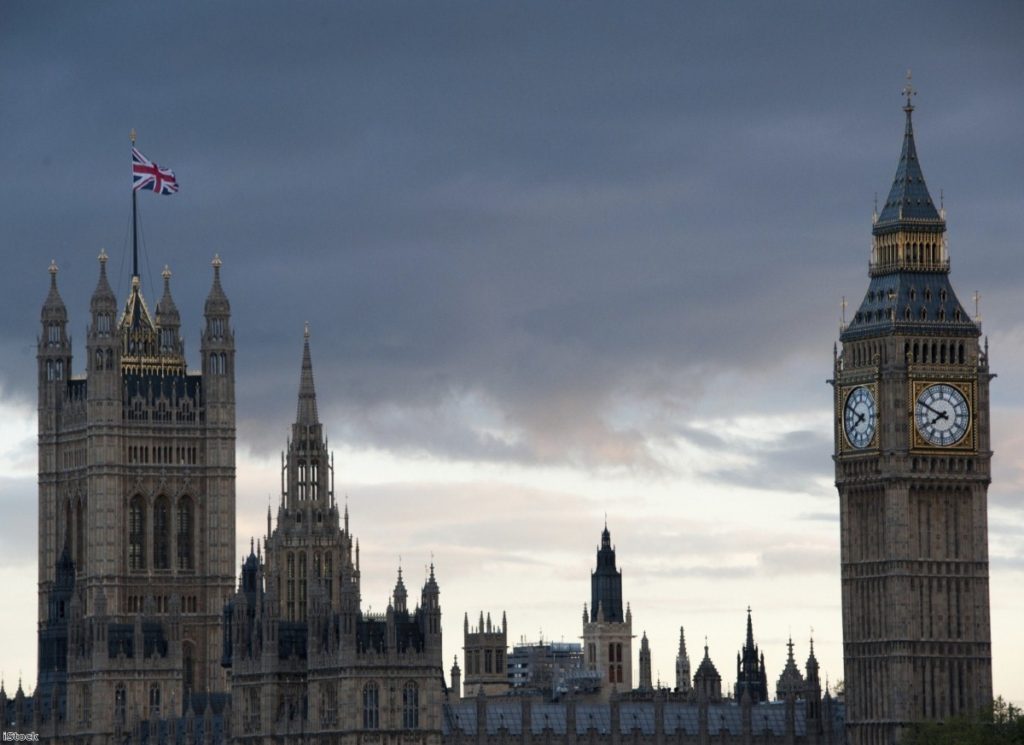"History will not be kind to this parliament," Tory rebel Anna Soubry told the Commons last week during the Article 50 debate, "nor to the government I served in."
It was hard to disagree. The story of this week, as the bill went to committee stage, was of a parliament which had been given teeth by the judiciary, only to meekly remove them one-by-one and give the executive a kiss.
Wave after wave of amendments crashed against the government rocks. None survived. The Article 50 bill was left unamended when it went to the Lords. Now unelected peers will struggle to find the confidence to take a stand on a matter which their elected cousins were unwilling to.
Every attempt to limit the executive was rejected: there would be no impact assessments, no meaningful parliamentary vote on the final deal, no formal consideration of the views of the devolved assemblies, no membership of the single market, no guarantees of rights for EU nationals, no delivery on the Leave campaign's NHS promise. Historians will look back aghast at the parliamentarians who were too petrified to fulfil their democratic function of holding the government to account.


Jeremy Corbyn's response to the crisis was a master class in ineptitude. There was almost a kind of beauty in how thoroughly he messed it up. He was at once cynical and naive, arrogant and timid. The imposition of a three-line whip was appalling. Many Labour MPs were weighing up impossible choices. They wanted to respect the public vote but many represented strongly Remain constituencies. Others had to square their support for the public vote with the fact they personally disagreed with it. Some wanted to back the bill but on condition of amendments, meaning they would vote for it at second reading then potentially against at third reading if those amendments had not succeeded.

Corbyn's three-line whip allowed for none of these subtleties. There were warm words about understanding his MPs' difficult positions but a three line whip with kind words functions the same way as a three line whip with cold ones: front benchers have to resign if they don't follow it. And so they did. Corbyn lost some early on, like Dawn Butler. Others he lost after the failure of the amendments, like Clive Lewis, who is widely expected to run for the leadership on a 'left-wing-but-not-barmy' ticket if a space opens up.
Corbyn didn't have to impose that three line whip on a matter of conscience. Doing so did little to get the bill through – most Labour MPs would have backed it anyway. It was against his own strategic interest, because it jettisoned people he could scarcely afford to lose – including a potential leadership challenger. And it was against the instincts of those members who elected him because of his proud history of principled votes against the party line. It made no sense on any level, except that of a party terrified into acquiescence on a decision which the majority of its members and voters opposed.
Much of the criticism has focused on Labour, but the silence of moderate Tories was deafening. Once upon a time there was supposed to be a rump of 40 or so MPs on the government benches prepared to rebel over the single market or an unrealistic exit strategy. These were supposed to be the wise old Tories, the grey hairs who understood the Brexit mandate but wouldn't support a plan unless it had recognised the economic pitfalls of undue haste. Now they were nowhere to be seen.
Exceptions existed. Soubry was magnificent, openly struggling with the compromises she was having to make. Ken Clarke, Heidi Allen, Andrew Tyrie, Claire Perry, Bob Neill all stood up for their principles. There were others, but nowhere near enough.

Why are the moderate Tories so silent? Have they also had their backs broken as the constant WILL OF THE PEOPLE mantra shatters all political principles before it? Or are they reflecting the arithmetic? With May able to rely on support from the DUP and Labour supporters like Frank Field, Kate Hoey and Gisela Stuart, there is little point in rebelling. She's got the numbers. Maybe if things get tough later on and that support starts to slip away, they'll re-emerge. But for now, there is no moderate wing of the Conservative party. It is united in pursuing an extreme Brexit strategy.
"I personally shall be voting with my conscience content in this vote," Ken Clarke told the Commons last week. "When we see what unfolds hereafter as we leave the European Union I hope the consciences of other members of parliament may remain equally content."
That's a line historians may dwell on in the future, when they look back on this period. Parliament has been scared stiff in the face of a cynical government wielding a popular mandate. In the moment when scrutiny was most needed, MPs threw up their hands and surrendered.
Ian Dunt is the editor of Politics.co.uk. His book – Brexit: What The Hell Happens Now? – is out now from Canbury Press.
The opinions in politics.co.uk's Comment and Analysis section are those of the author and are no reflection of the views of the website or its owners.









